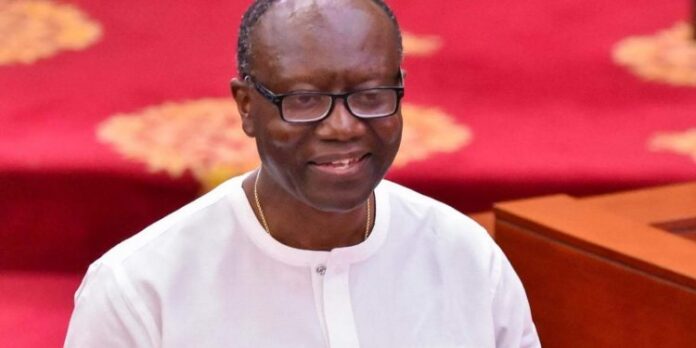
Accra, Jan 20, GNA — Mr Ken Ofori-Atta, Finance Minister, says government will continue to implement strong structural reforms to ensure fiscal consolidation and economic growth in Ghana.
The reforms, he said, would be implemented in the areas of tax policy, public financial management, financial, energy and cocoa sectors.
Mr Ofori-Atta said this at a joint press briefing on Friday evening, which announced the approval of a second tranche of US$600 million from the International Monetary Fund (IMF) for the country’s Post COVID-19 Programme for Economic Growth (PC-PEG).
The Minister explained that the implementation of such reforms was for government to attain “a more resilient, transformed economy that delivers higher living standards for our people within the shortest possible time.”
He described the Fund’s approval of the first review and the second tranche as a “resounding affirmation that the programme is advancing steadily, and our reform trajectory remains steadfast.”
That, Mr Ofori-Atta attributed to debt restructuring agreement arrived at with official creditors on Friday, January 12, 2024, having concluded the country’s Domestic Debt Exchange Programme (DDEP) in 2023.
This agreement grants us a considerable cashflow relief during the programme period [2023 to 2026] as Ghana would not be making payment on debt service to its Official bilateral creditors until the end of 2026, the Minister said.
He noted in particular that Ghana would receive US$300m disbursement from the World Bank under the Development Policy Operation Financing by the end of February, as well as US$250 million to support the Ghana Financial Stability Fund.
“The Government is committed to fully implementing the IMF-supported PC-PEG, and we have put in place all the necessary implementation arrangements to make sure the programme does not derail so we can fully achieve our intended objective,” he said.
“Despite the difficult economic environment, the Authorities reforms are bearing fruit, and signs of economic stabilisation are emerging,” said, Mr Stephane Roudet, IMF Mission Chief for Ghana.
He noted that growth in the Ghanaian economy had proven more resilient than it was initially envisaged, with inflation declining rapidly, and fiscal and external positions also improving.
He also stated that the Bank of Ghana’s international reserves had been increasing and exchange rate volatility decreasing, but noted that “the road to full stabilisation will be long.”
Mr Roudet, therefore, encouraged government to address the remaining challenges, which would require determination and steadfast policies and reform implementation.
The approval of the USS600m, brings the total disbursement for Ghana under the Extended Credit Facility (ECF) to a total of US$1.2 billion out of the USS3bn for the three-year programme.
GNA
